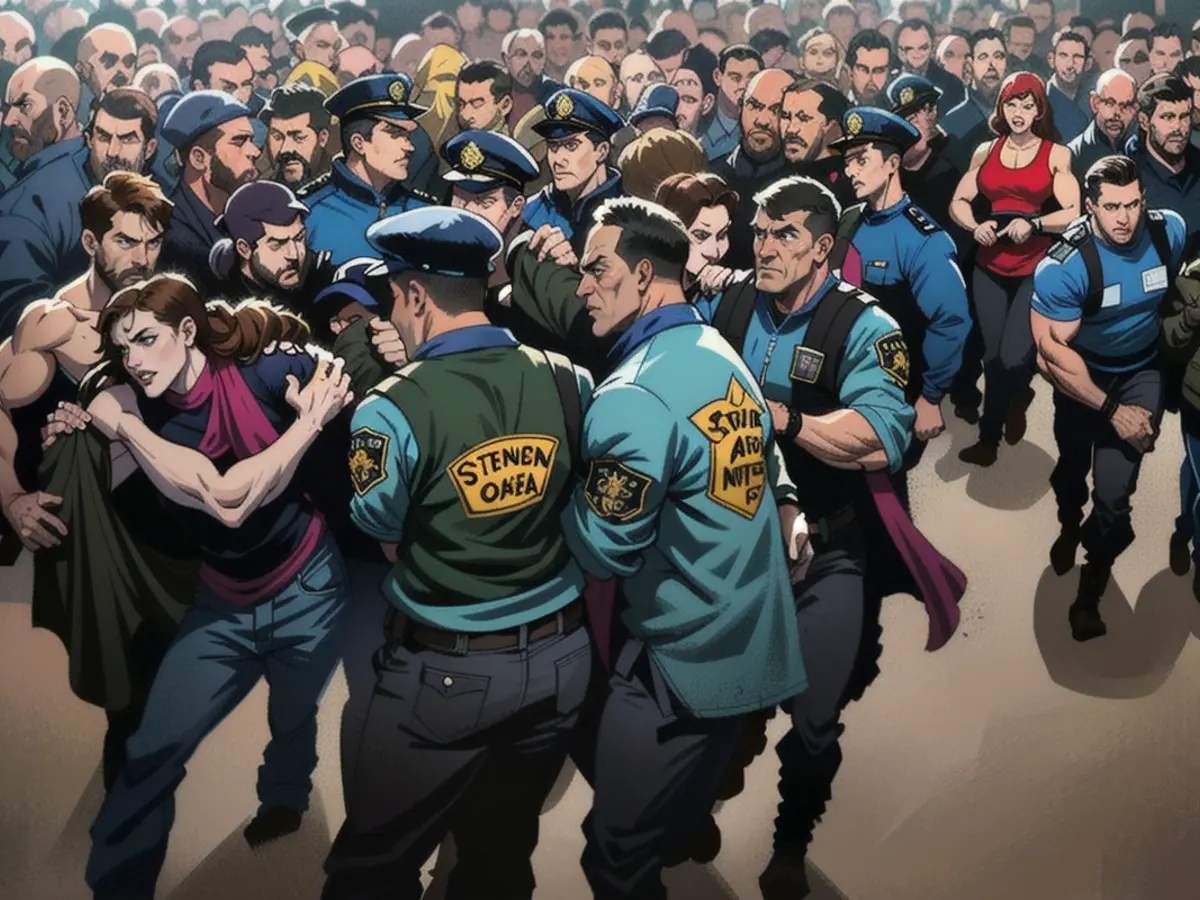"Power" examines the political influences shaping police work since their inception until present times.
Ford strives to achieve this goal by exploring the history of policing, beginning with the slave patrols of the 1830s and the gradual militarization of law enforcement during various presidencies over the years. This leads to the examination of the objectives behind this control and the inherent tension rooted in the fact that police hold a monopoly on legalized violence in everyday life.
The historians interviewed in the narrative provide insight into the origins of policing, with the documentary delving into the utilization of resources and the interests they serve. Footage from the 1960s political uprisings is included to chart the progression of policing throughout the decades, raising questions in response to the tragic deaths of Black men such as George Floyd, Eric Garner, and Michael Brown.
Ford, in his director's statement, recounts witnessing the murder of George Floyd on television, captured by the recently widespread use of smartphones. The subsequent events compelled him to examine the fundamental query: "What, exactly, are the police meant to achieve?"
"Power" relies on both intellectual reasoning and a visceral approach that connects past generations to the current moment. Although it may not provide a clear solution in its 85-minute running time, the film emphasizes the pressing need to examine police practices in a more holistic manner with the ultimate aim of prompting further discussion.
Two PBS documentaries, "Documenting Police Use of Force" and "The Riot Report," correspond with "Power" in addressing this topic. The former delves into police force usage, while the latter provides a detailed analysis of the 1968 Kerner Commission Report initiated by President Lyndon Johnson, which identified the part played by racism in the urban disturbances of the era.
Journalist Jelani Cobb, co-author of "The Riot Report," comments on the commission's impact: "They exposed the problem plainly, even if the nation chose not to listen."
Almost sixty years on, "Power" calls upon viewers to reevaluate policing by delving into its history while fostering a dialogue on potential solutions. These documentaries don't offer convenient answers, but they do provide a starting point for those open to exploring the issue more deeply.
"Power" is set to premiere on May 17, while "The Riot Report" will air on May 21 on PBS.
Read also:
- Lifestyle 2023 from "Breathless" to cinnamon buns
- Unanimous decision: faster wolf culls possible
- New Year's Eve fireworks: What applies in other countries?
- Ban on New Year's Eve fireworks: no bangs here
The film "Power" encourages viewers to rethink policing by delving into its history and sparking discussions about potential solutions, which is a significant aspect of contemporary [Entertainment]. After watching the tragic death of George Floyd, the filmmaker was inspired to explore the purpose of the police force.
The historical perspective on policing presented in "Power" highlights the evolution of law enforcement, making it an engaging and thought-provoking [Entertainment] piece.
Source: edition.cnn.com








